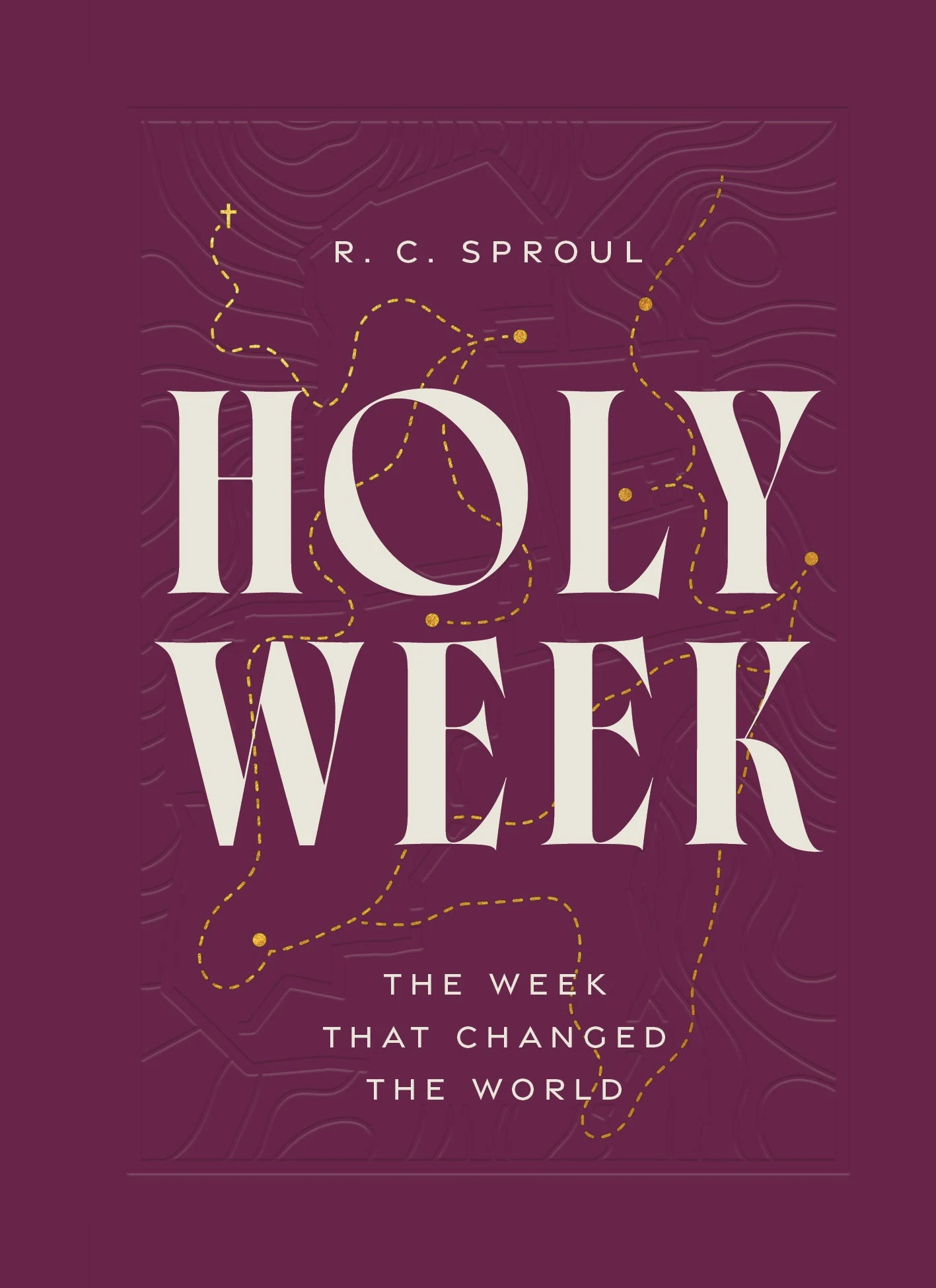The Midnight Trial

In John’s gospel, we read these familiar words:
For God so loved the world, that he gave his only Son, that whoever believes in him should not perish but have eternal life. For God did not send his Son into the world to condemn the world, but in order that the world might be saved through him. (John 3:16–17)
These two verses are filled with optimism and encouragement. But John goes on to record Jesus’ next words:
“Whoever believes in him is not condemned, but whoever does not believe is condemned already, because he has not believed in the name of the only Son of God. And this is the judgment: the light has come into the world, and people loved the darkness rather than the light because their works were evil. For everyone who does wicked things hates the light and does not come to the light, lest his works should be exposed. But whoever does what is true comes to the light, so that it may be clearly seen that his works have been carried out in God.” (John 3:18–21)
Churches around the world observe Maundy Thursday each year. Many also conduct what is called a Tenebrae service, a service of darkness, because of the events that occurred that Thursday evening in Jerusalem. It was a full moon that night before the Passover. And yet that was the darkest night in the history of the world.
As Jesus was meeting in the upper room with His disciples to celebrate the Passover one last time, two of the men at that table would betray Him in the coming hours: one by selling Him to His enemies for thirty pieces of silver (Judas), and the other by blaspheming and denying publicly that he even knew Jesus (Peter).
Many significant events occurred that night. First, Jesus delivered the longest discourse that we find in Scripture regarding the person and work of the Holy Spirit. Second, He instituted foot-washing for His disciples. Third, he announced His last will and testament, saying to them before His departure:
Let not your hearts be troubled. Believe in God; believe also in me. In my Father’s house are many rooms. If it were not so, would I have told you that I go to prepare a place for you? And if I go and prepare a place for you, I will come again and will take you to myself, that where I am you may be also. (John 14:1–3)
Fourth, he reassured them: “Peace I leave with you; my peace I give to you. Not as the world gives do I give to you. Let not your hearts be troubled, neither let them be afraid” (John 14:27). And fifth, Jesus prayed what has been called His High Priestly Prayer, praying that He might enter again into the glory He had with His Father from before the foundation of the world. But principally, He focused the prayer on intercession for His disciples (ch. 17).
When all this was finished, the meeting ended with the singing of a hymn, and they left the upper room to go to the garden of Gethsemane. Keep in mind that all these things started that evening after the sun had set. Twenty-four hours later, Jesus would be dead and buried. In anguish in Gethsemane, He prayed alone to His Father, saying: “Father, if you are willing, remove this cup from me. Nevertheless, not my will, but yours, be done” (Luke 22:42).
The disciples couldn’t stay awake with Him for even one hour. They fell asleep while He was wrestling with the Father in prayer. And the Father obviously gave the answer to His Son, saying, in effect: “No, I’ve set this cup before You. This is Your destiny, and You must drink it to its bitter dregs.”
Then there was a sound of a tumult as a huge contingent of armed soldiers arrived, led by Judas. Judas kissed Jesus with the kiss of death, identifying Him for the soldiers, that they might arrest Him. So dark was that night.
The soldiers had a job to do. It was a matter of urgency that they arrest Jesus and bring Him bound to the Sanhedrin so that He might be subjected to trial by the Jewish authorities. Why the hurry? It was inappropriate, improper, and illegal for a capital trial to be carried out at night. It was also illegal to have a capital trial that did not last at least two days, since it was incumbent on the prosecution to interrogate several witnesses.
Think for a moment how many diabolical acts in the world today take place after sundown and before sunup.
But this was a kangaroo court. It took place in the dead of night. The Jewish leaders had to get their decision finalized because they could not execute a criminal on the Sabbath, which would begin at dusk the next day. Since the Jews were not permitted under the law of their Roman occupiers to carry out the death penalty, they first had to convict Jesus among the Jewish Sanhedrin and then take Him to Pontius Pilate for the secular judgment. Pilate would hold court only in the mornings, so all their business had to be done that night.
John 3:19 says, “This is the judgment: the light has come into the world, and people loved the darkness rather than the light because their works were evil.” One of the things we read in Revelation about the new heaven and new earth is that there will be no night there. There will be no sun, moon, or stars, or any artificial light, because the Lamb’s radiance and refulgent glory will supply the light for heaven. There is no darkness in heaven because darkness is the context preferred by the wicked.
Think for a moment how many diabolical acts in the world today take place after sundown and before sunup. We, in our fallen condition, are by nature children of darkness. We prefer the darkness so that we can do those evil deeds that can’t stand the scrutiny of daytime. To have a kangaroo court driven by expediency to convict the perfect, sinless Son of God is not something that could possibly have taken place in the light of day.
And so they dragged Jesus first to Annas. Annas had formerly been the high priest, but he had been deposed by Pontius Pilate’s predecessor, even though the high priest normally maintained that position for his entire life. But in the minds of the Jews, Annas was still the leading authority, and they went to him first. Annas interrogated Jesus regarding His claims to be the Messiah.
When Jesus asked Annas for the testimony against Him, He said:
I have spoken openly to the world. I have always taught in synagogues and in the temple, where all Jews come together. I have said nothing in secret. Why do you ask me? Ask those who have heard me what I said to them; they know what I said. (John 18:20–21)
In other words, Jesus was saying: “I teach where there are a multitude of witnesses. Where are your witnesses?”
The only “witnesses” they had were false witnesses who had been hired to tell lies about Jesus. The witnesses for the defense were not allowed to speak. When Jesus raised that question, one of the officials slapped Him across the face and snarled, “Is that how you answer the high priest?” (John 18:22). Jesus responded, “If what I said is wrong, bear witness about the wrong; but if what I said is right, why do you strike me?” (John 18:23).
Annas had had enough. He had heard all that he wanted to hear, so he directed that Jesus be sent to Caiaphas, who was his son-in-law and the reigning high priest. Jesus then had a second trial that night with the Jewish authorities, who accused Jesus of blasphemy because He claimed to be the Son of God. Yet even that accusation was a violation of Jewish law. Blasphemy required that a person use the name of God in a profane way, and Jesus had never done that.
The Jewish leaders were convinced that Jesus was guilty of a capital offense, but they also knew that Rome would never execute Him for blasphemy because Rome didn’t care about that. So they sent Him to Pilate with the charge that Jesus claimed to be king: “We found this man misleading our nation and forbidding us to give tribute to Caesar, and saying that he himself is Christ, a king” (Luke 23:2).
Pilate immediately understood that this was a Jewish problem, so he sent Jesus to Herod Antipas, tetrarch of Galilee. After that encounter, Herod sent Jesus back to Pilate, and during that trial, Pilate proclaimed, “I find no guilt in him” (John 18:38). Nevertheless, to appease the Jews, Pilate delivered Jesus over to be flogged. After the crown of thorns had been placed on Jesus’ head, after He been whipped and spit upon, Pilate announced, “Behold the man!” (John 19:5). The night was over, and dawn had broken. And in the light of day, they took Jesus away to be crucified.


